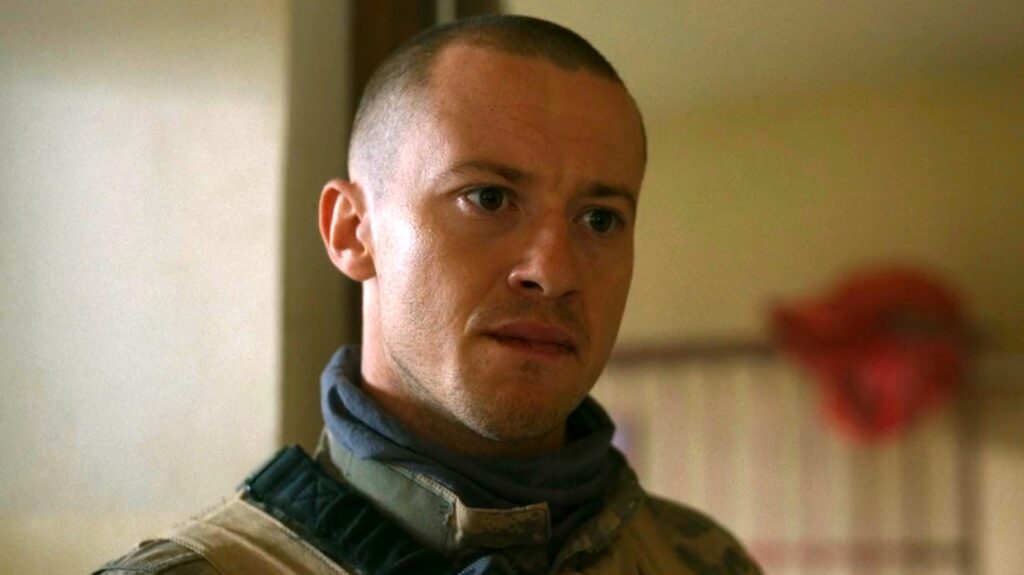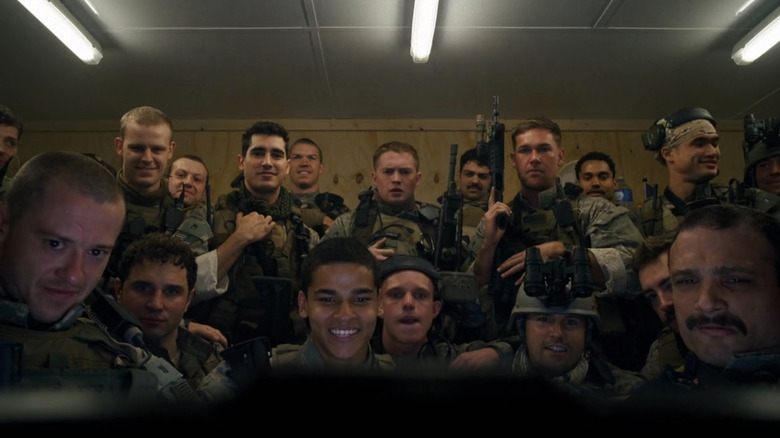The best war movies of all time manage to drop audiences into the utter horrors of war, depicting humanity’s capacity for heroism and sacrifice. And if there’s any war film in recent memory that’s going to wind up on future versions of those lists, it’s “Warfare.” It holds a 92% rating from critics on Rotten Tomatoes at the time of this writing, and it’s currently available to watch on HBO Max. If you’ve yet to see it, don’t miss out on this story that’s going to stick with you long after it’s over.
“Warfare” is written and directed by Alex Garland (who previously made “Ex Machina” and “Annihilation”) and Ray Mendoza, a former Navy SEAL whose real-world experiences inspired the story. Garland himself has recently pivoted from science fiction fare to grittier war epics: Prior to making “Warfare,” he helmed 2024’s “Civil War,” which took a journalistic approach to a theoretical new American conflict and earned a 7/10 rating in Looper’s review.
On top of Garland, a big selling point of “Warfare” is the star-studded cast, which is filled with pretty much every single exciting young actor working today. That includes Joseph Quinn, Will Poulter, D’Pharaoh Woon-A-Tai, Charles Melton, and Noah Centineo, to name a few. That star power didn’t translate to a huge box office haul, as the film grossed $33 million against a $20 million budget. But with the film now on HBO Max, more people might be willing to give it the shot it deserves.
Warfare stunned critics with its realism
“Warfare” is based on real soldiers’ accounts of the Battle of Ramadi that occurred in 2006 in the midst of the Iraq War. The whole movie is presented in real time, so you see how much downtime the soldiers have. It lulls in parts, but then the violence breaks out and it becomes an unrelenting struggle to make it out of the situation alive. It’s an incredibly visceral film that ultimately worked for many critics, who praised its commitment to realism.
That’s particularly the case when it comes to sound design. Looper’s review of “Warfare” praised this element, noting that it worked particularly well in a cinema setting. If you have a decent sound set-up at home, you should expect a similar experience watching it on HBO Max. Ultimately, the sound design works in service of showing the brutal reality of war. What the film may lack in characterizations, it makes up for in brutal imagery, with Empire writing, “War is hell, and ‘Warfare’ refuses to shy away from it. Free of the operatics of most supposed anti-war films, it’s all the more effective for its simplicity. It is respectfully grueling.”
“Warfare” only has a 95-minute runtime, a far cry from other war films like “Saving Private Ryan” and “Black Hawk Down” that are well over two hours each. It may not seem like a long time, but once the gunfire starts, it’ll feel like it never ends. By the time the credits are rolling, you feel like you’ve been through an ordeal alongside the characters, and that’s a testament to Alex Garland and Ray Mendoza’s combined efforts.


